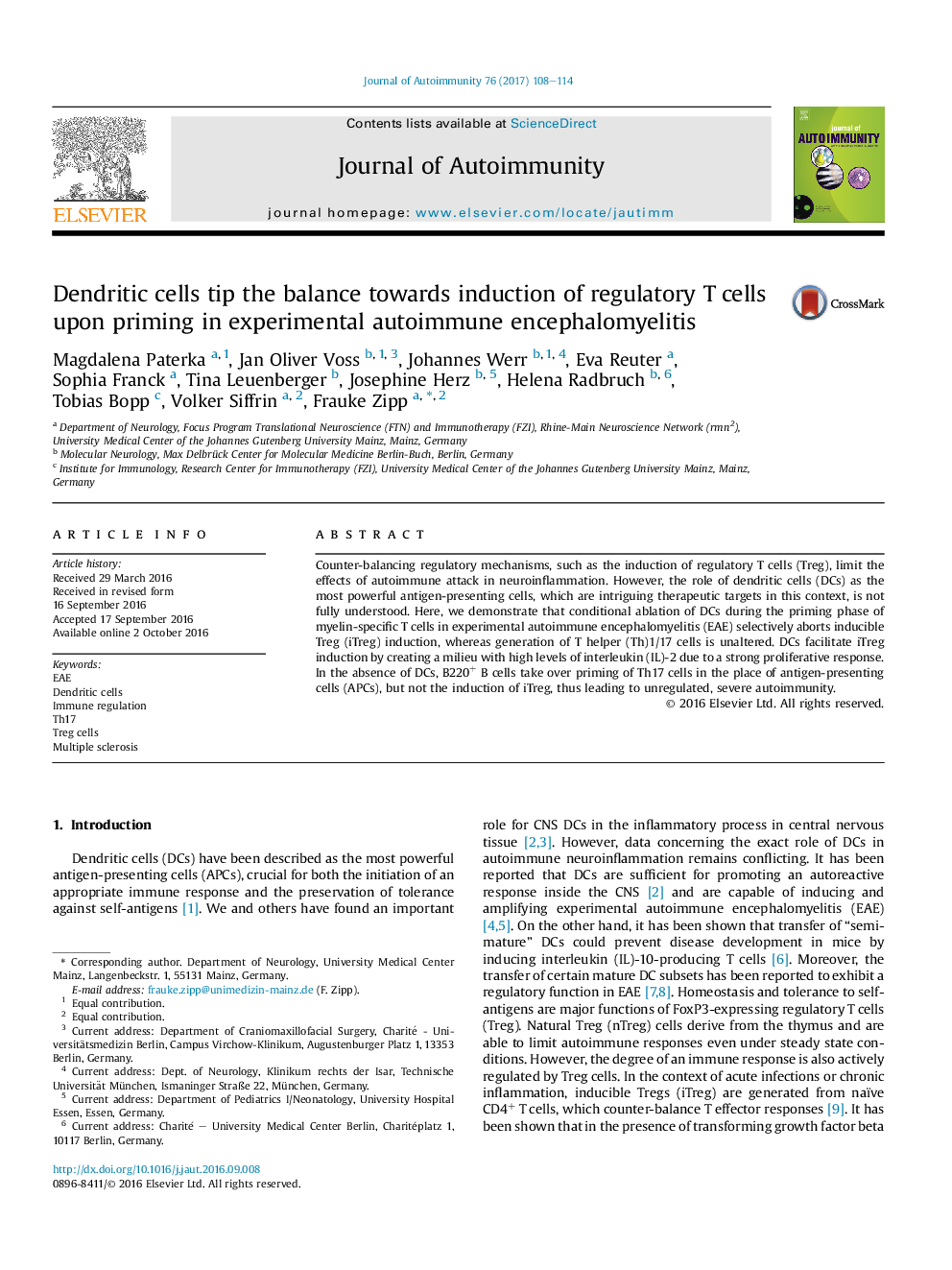| Article ID | Journal | Published Year | Pages | File Type |
|---|---|---|---|---|
| 5667937 | Journal of Autoimmunity | 2017 | 7 Pages |
â¢Dendritic cells are potential therapeutic targets in autoimmune neuroinflammation.â¢Studied with transgenic mice and experimental autoimmune encephalomyelitis (EAE).â¢Conditional ablation of DCs during disease initiation leads to exacerbated EAE course.â¢No increase in regulatory T cells (Treg) in secondary lymphoid organs and CNS.â¢Evidence for a protective role of DCs in the initiating phase of EAE.
Counter-balancing regulatory mechanisms, such as the induction of regulatory T cells (Treg), limit the effects of autoimmune attack in neuroinflammation. However, the role of dendritic cells (DCs) as the most powerful antigen-presenting cells, which are intriguing therapeutic targets in this context, is not fully understood. Here, we demonstrate that conditional ablation of DCs during the priming phase of myelin-specific T cells in experimental autoimmune encephalomyelitis (EAE) selectively aborts inducible Treg (iTreg) induction, whereas generation of T helper (Th)1/17Â cells is unaltered. DCs facilitate iTreg induction by creating a milieu with high levels of interleukin (IL)-2 due to a strong proliferative response. In the absence of DCs, B220+ B cells take over priming of Th17Â cells in the place of antigen-presenting cells (APCs), but not the induction of iTreg, thus leading to unregulated, severe autoimmunity.
